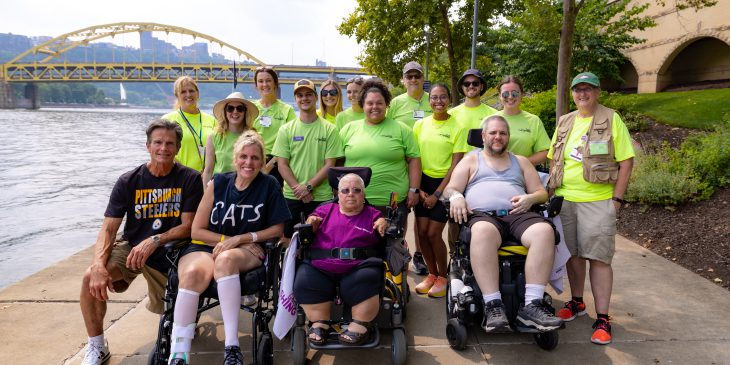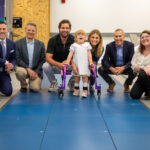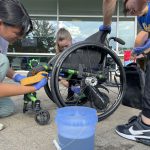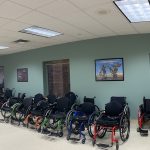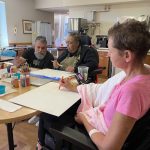A stroke or spinal cord injury is a life-changing event, affecting patients not only physically, but also intellectually, emotionally, and socially. For some, the future can feel uncertain and scary. That’s why staff at UPMC’s Rehabilitation Institute help patients to regain not only physical function, but also the confidence to engage with the broader world and participate in recreational activities.
UPMC Mercy’s Gone Fishing Program started in 2018 after physical therapist Charlene Subrick took a fishing class and realized it was the perfect accessible activity for wheelchair users. Every Wednesday during the summer, Charlene and her colleagues lead three new wheelchair users on an epic sojourn through the city – navigating sidewalks, crosswalks, construction crews, and public transit – to Pittsburgh’s North Shore. Patients are encouraged to invite family members to share in the experience as they fish for walleye, trout, carp, bass and other species in the shallow waters of the Allegheny River. The fresh air, scenic view of downtown, and occasional daytime Pirates game nearby provide a lovely backdrop for teaching community re-entry techniques to patients and their families. Often, this is the first time patients will leave the hospital after an injury or stroke.
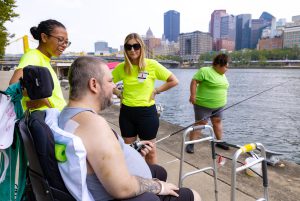
For many UPMC Mercy rehabilitation patients, the fishing trip to the North Shore represents the first time they’ll leave the hospital after a stroke or injury.
“Just going around a hospital on flat surfaces doesn’t prepare them for when they go home,” said Subrick.
A $10,000 grant from the Beckwith Institute allowed Subrick to purchase adaptive equipment, to make the activity accessible to patients with a wider variety of disabilities. One long-time patient, Kimberly Heim, is unable to make a fist and uses a self-casting reel purchased through the program. Heim has worked with Subrick since 1991, and often attends the fishing trips to make friends and show new wheelchair users that they too can continue to lead full lives.
“I advocate for people to come down and go fishing. If they see I can do it, they can do it,” Heim said. “I’m considered a role model.”
The program has so far taken about 60 patients fishing and is a key part of UPMC’s holistic approach to physical rehabilitation. The Rehabilitation Institute also employs a full-time recreational therapist who is currently developing a program to help patients improve functional mobility while socializing and having fun.
“Having fun in the rehab process is really important,” Subrick said. “You’re stuck in a hospital bed, and I want to get people out to show people you can still have fun.”
Journalists interested in learning more can contact mediarelations@upmc.edu.



